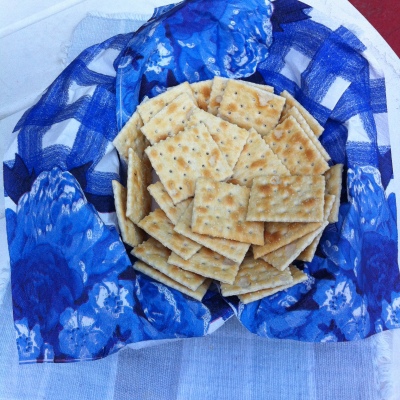“Charge them that are rich in this world, that they be not highminded, nor trust in uncertain riches, but in the living God, who giveth us richly all things to enjoy;” 1 Timoty 6:17

Photo by Pixabay on Pexels.com
I made bacon-lettuce-and-tomato sandwiches for lunch yesterday and by the time I had them assembled I had used four different knives: a table knife to spread the mayonnaise, a small serrated knife to slice the tomato, a chef’s knife to chop the lettuce, and a butcher knife to cut the bacon. It was a simple reminder that I live in abundance.
The first time I realized that my kitchen is evidence of affluence was while I was living in Panama. We had a twelve-year-old neighbor who loved eating my brownies and wanted to learn how to make them himself. I translated the recipe and handed it to him. He looked it over and then inquired, “What do I cook them in?”
I went to the cupboard and pulled out my square baking pan and asked, “Do you have one of these?”
He said, “No.”
I took out my rectangular baking pan that holds the same volume as the square one and asked, “How about one of these?
Again, the answer was, “No.”
Round pans, I thought. Usually, the first cake pans you buy are round ones so you can make festive birthday cakes. I was sure his mother would have those in her kitchen – but she didn’t.
I was beginning to feel a little bit embarrassed parading my wealth in front of him. I considered every one of those pans a necessity, and he had none of them. Then inspiration hit and I showed him my cast iron skillet. “Do you have one of these?”
“Yes,” he happily answered and went off to bake his brownies while I contemplated how blessed I was with material goods.
Of course, my family’s abundance isn’t evident just in my kitchen. Step into my basement, and you will be met with an array of screwdrivers (slot head, Phillips, and Trox in various lengths), hammers (claw, ball peen, framing and a rubber mallet), saws (hacksaw, backsaw, meat saw, jigsaw, and a large table saw). There are tools down there for every kind of DIY project my husband can think of. My craft room would be the envy of many with its store of papers, punches, die cuts, ribbons, rulers, stamps, inks, brads, etc. and my closet is full of clothes.
My culinary encounter with that young man in Panama challenged me to be more grateful for the material goods that are a part of my everyday life. It’s one reason I keep a gratitude journal that lists not only the most significant things – family, church, friends – but also a list of cake pans and kitchen knives.
What about you? Where are you recognizing everyday abundance in your life?






 I must confess, I am one of those people who prays for parking spaces. I also pray about lost car keys, for motivation to go another quarter-mile on my fitness walk, and for guests to be delayed just a little while so I can finish dinner preparations.
I must confess, I am one of those people who prays for parking spaces. I also pray about lost car keys, for motivation to go another quarter-mile on my fitness walk, and for guests to be delayed just a little while so I can finish dinner preparations.
Recent Comments